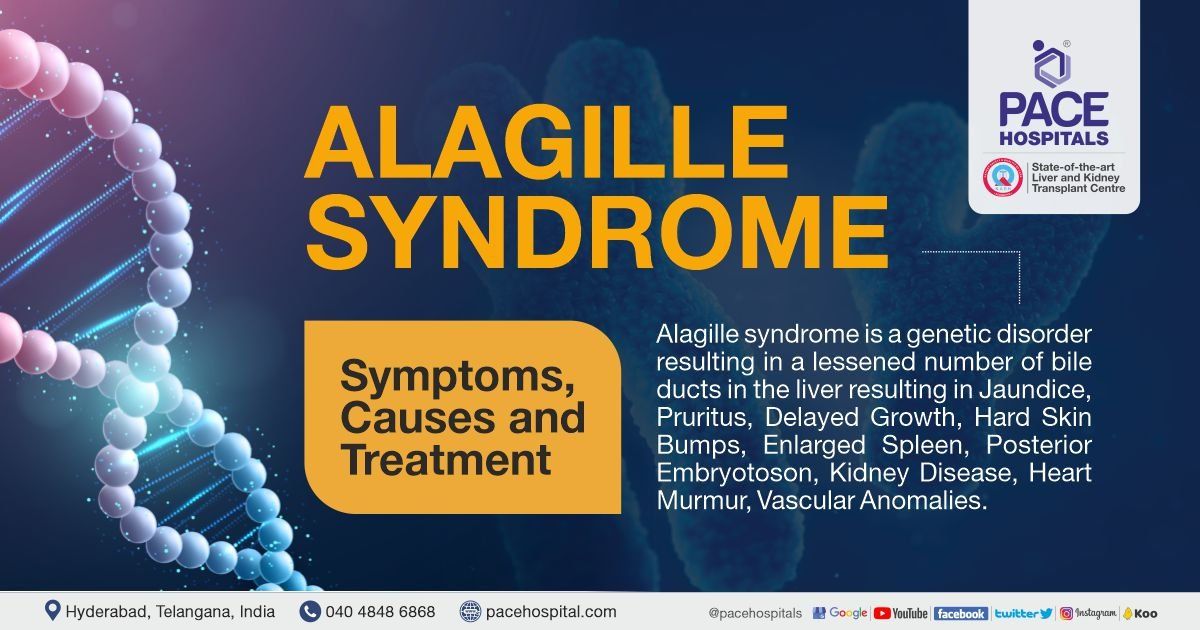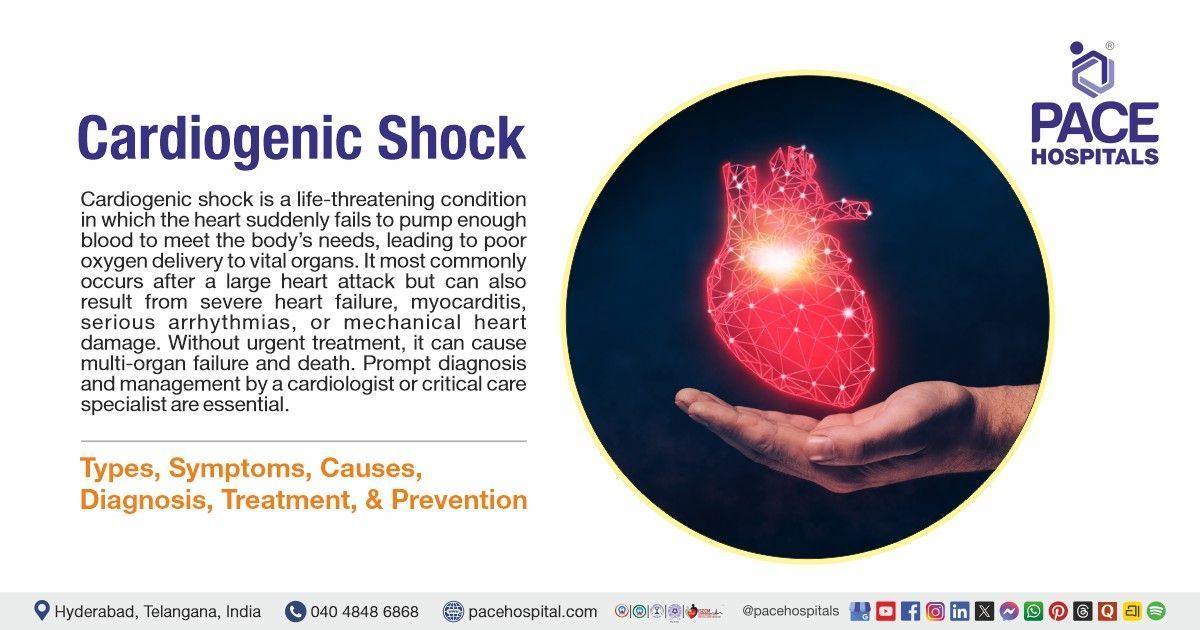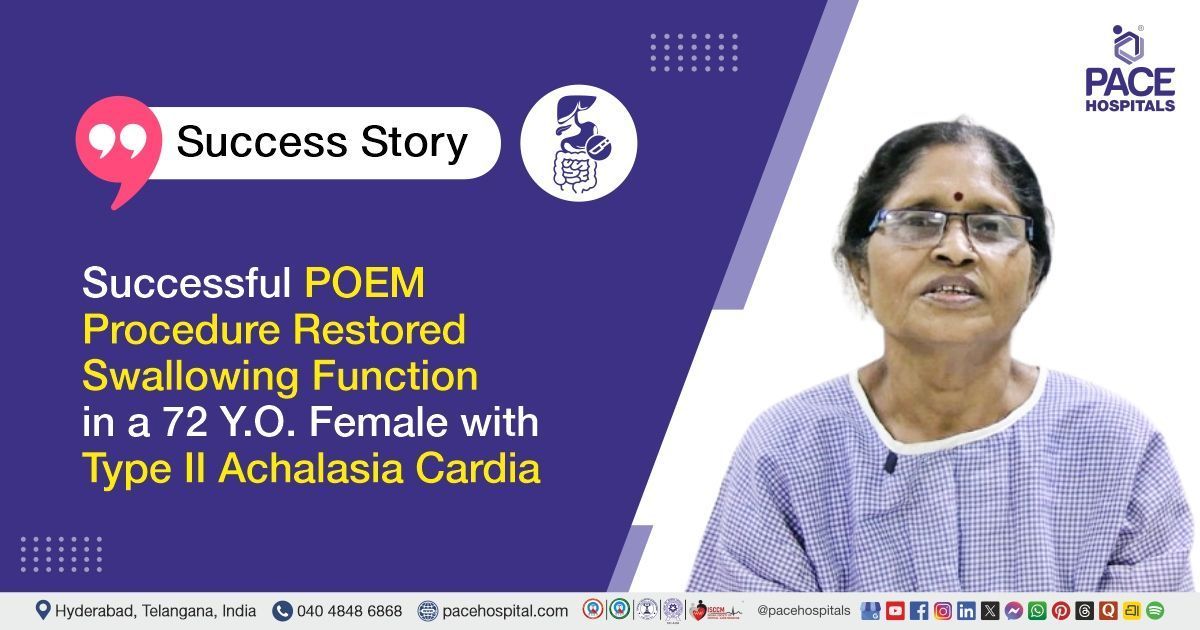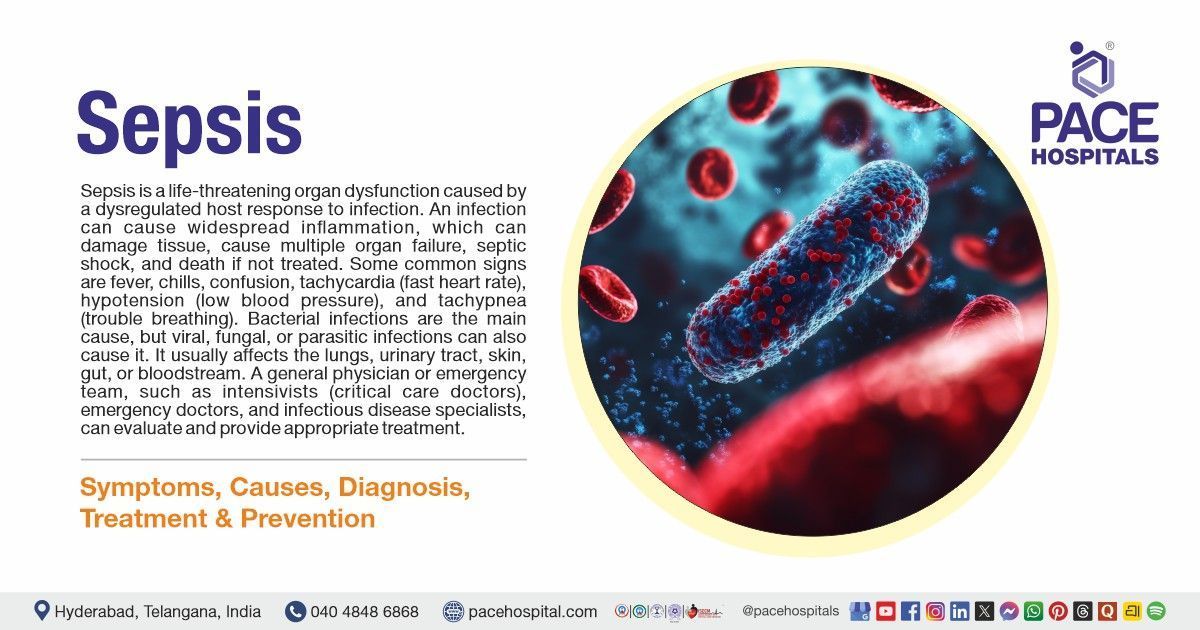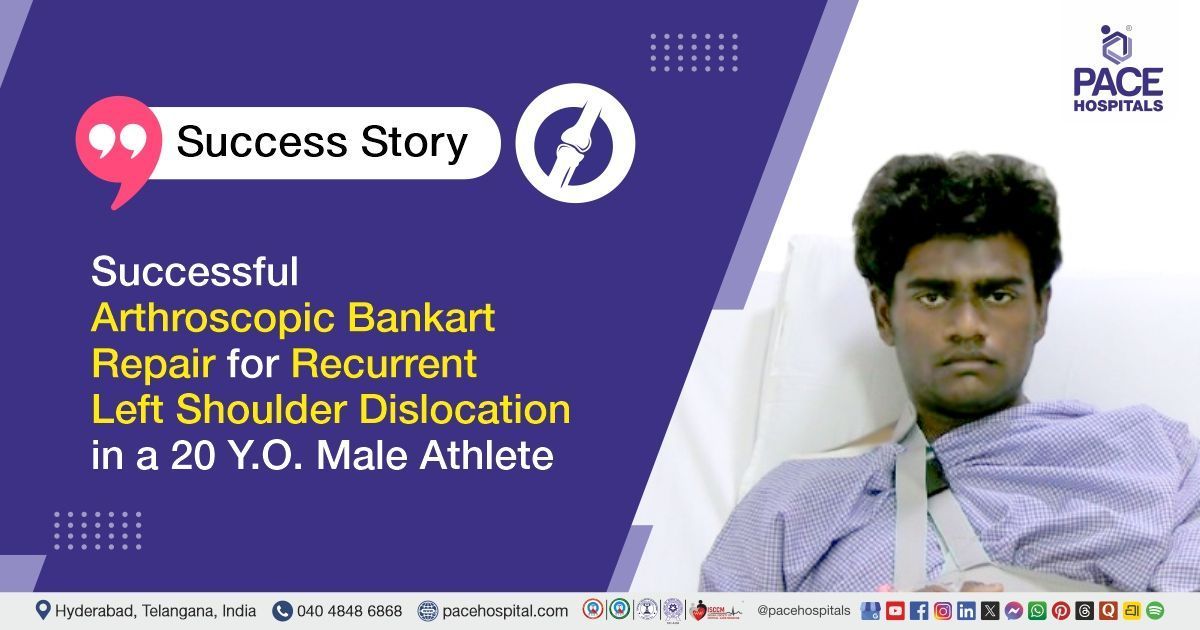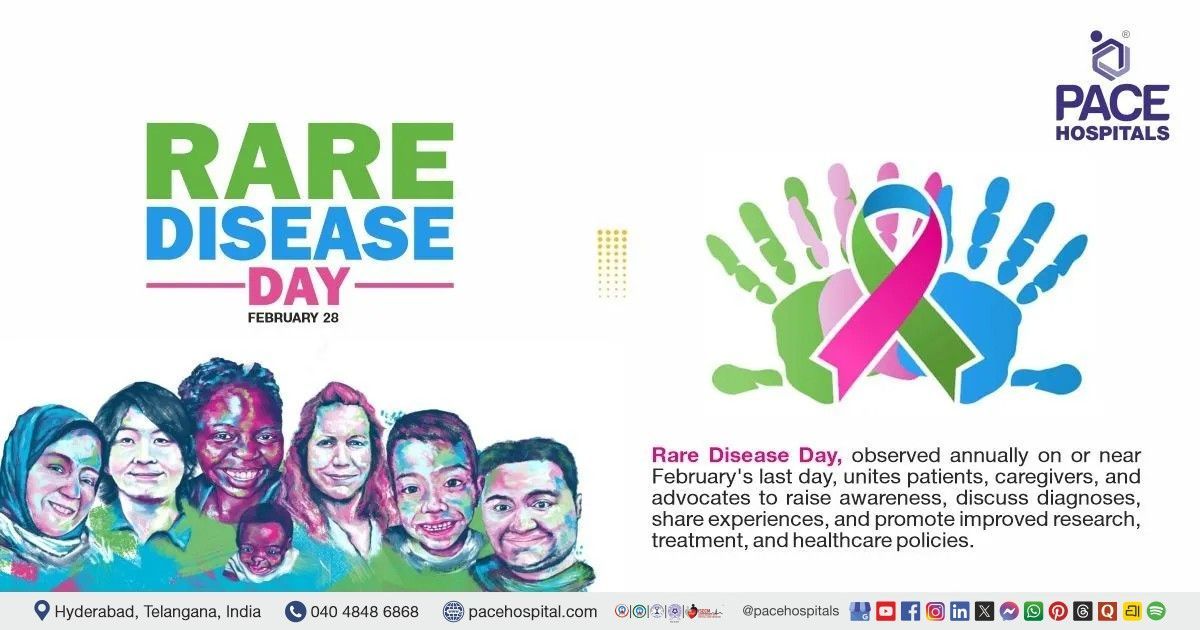Alagille Syndrome - Symptoms, Causes and Treatment
PACE Hospitals
Alagille syndrome is a genetic disorder (inherited disease), resulting in a lessened number of bile ducts (bile duct paucity) in a liver; due to the fewer bile ducts, transportation of bile gets restricted, leading to the deposition of too much bile in the liver. The inability to drain optimum bile from the liver to the important digestive organs disrupts the absorption of vital nutrients. Also, it can lead to toxic material's deposition in the body.
The bile ducts are tubular structures that carry bile from the liver to the small intestine. Uninterrupted transportation of bile is crucial as it supports the digestive process and absorption of dietary fats, vitamins and other nutrients and helps remove excess cholesterol, bilirubin, waste products and toxins from the body.
Bile formation is one of the functions of the liver. Bile is a liquid that contains water, electrolytes, and other substances, including bile salts, phospholipids, cholesterol, and an orange-yellow pigment (bilirubin), a by-product of the natural breakdown of red blood cells. Due to decreased bile ducts, people with Alagille syndrome can develop jaundice and Cholestasis, usually during the first four months of life. Cholestasis refers to the blockage of the flow of bile in the liver.
Affected children may also experience stunted growth because the body cannot adequately absorb fat and fat-soluble vitamins like (vitamins A, D, E, and K). Malabsorption of essential nutrients can also cause rickets (deficit in vitamin D), vision defects (lack of vitamin A), delay in the development of motor skills (vitamin E deficiency), and blood clotting issues (due to the shortage of vitamin K in body).
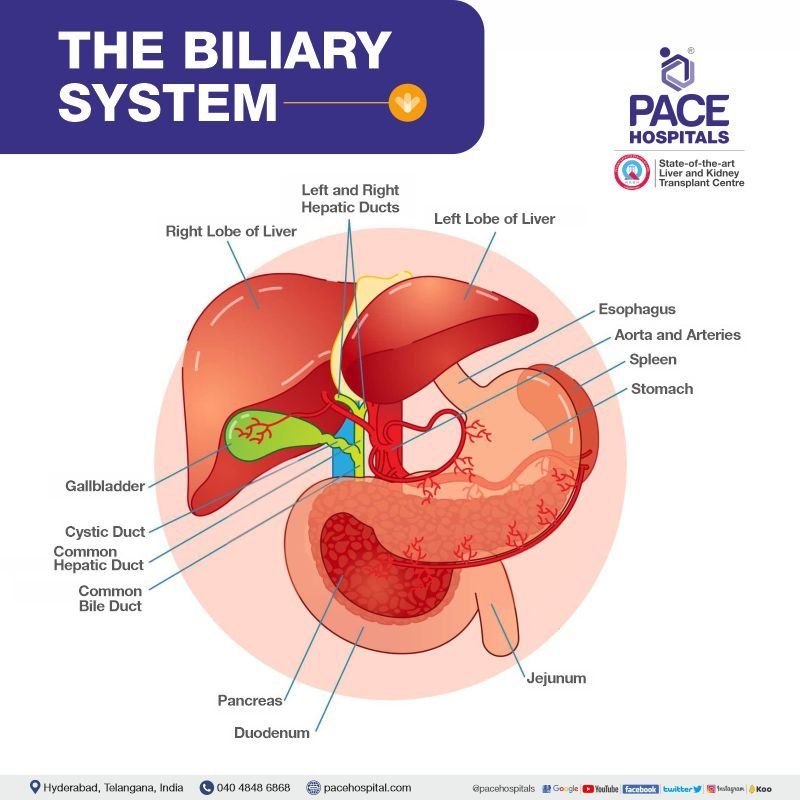
What are the causes of Alagille Syndrome?
Alagille syndrome is associated to either the JAG1 (jagged 1) gene mutation or the NOTCH2 gene mutation. JAG1 gene mutation accounts for nearly 88% of Alagille syndrome, and NOTCH2 gene mutation accounts for around 1% of these rare cases.
It is a rare condition that happens to one in a 1 lakh children and affects both genders. In the case of parents with Alagille syndrome, there is a 50% chance that children may develop the condition. Generally, the mutation is new, not inherited.
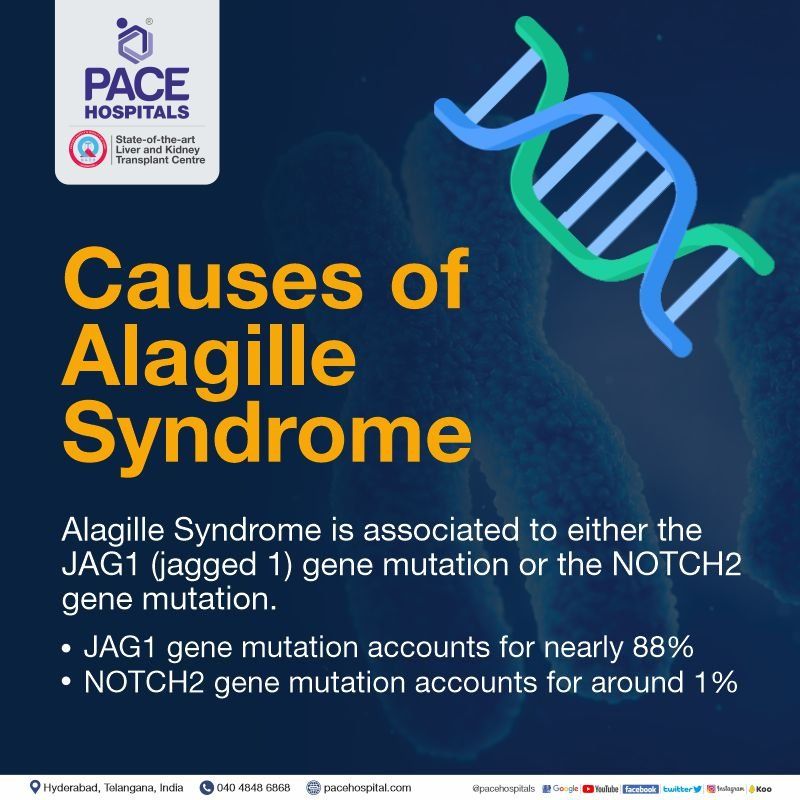
What are the symptoms of Alagille Syndrome?
Symptoms of Alagille syndrome usually appear during the first two years of life. A proper and thorough diagnosis by an expert hepatologist (liver specialist) would be suggestible in the case of this syndrome, as the symptom can be very similar to other ailments.
Alagille syndrome could also be the reason for malfunctioning body parts like the heart, eyes, skeleton, kidneys, and other organ systems. The liver is the primary organ affected by this syndrome. Its effects may range from jaundice or mild cholestasis to severe, progressive liver disease that can lead to liver failure.
Below are the most common symptoms of Alagille syndrome.
- Yellow Skin or Eyes (Jaundice): Jaundice, a condition with yellowing skin and the eyes' whites, can develop when bile is not properly excreted from the body. Poor bile transport and malabsorption can cause dark, pale, grey, or white stools. The yellow colour is due to the deposition of bilirubin when the liver cannot get rid of bile well enough.
- Itchy Skin (Pruritus): Deposition of bilirubin due to poor flow of bile can lead to an itching sensation.
- Delayed Growth: Alagille syndrome can make it difficult for the body to utilize nutrients such as fat-soluble vitamins. This can affect growth and normal development.
- Hard Skin Bumps: Alagille syndrome can lead to xanthomas, small amounts of fat that build up under the skin due to high cholesterol levels in the body, which happen because of the inability of the liver to get rid of cholesterol efficiently.
- Enlarged Spleen: Alagille syndrome damages the efficiency of the liver to get rid of excess fluid, which may cause spleen swelling due to the backing up of blood in the spleen. The role of the spleen is to purify the blood and prevent infections. An enlarged spleen increases the risk of severity, especially during sports.
- White ring in the Eye: Posterior Embryotoson - a ring-like structure in a cornea is an evident symptom of the Alagille syndrome, which can be visible during the eye test.
- Kidney Disease: Alagille syndrome may affect the efficiency of kidney. Kidney abnormalities, including irregular small kidneys, renal cysts, and impaired renal function, may be more common in patients with Alagille syndrome due to a NOTCH2 gene mutation.
- Heart Murmur: Alagille syndrome sufferers can develop heart abnormalities ranging from benign heart murmurs to severe structural defects. Heart murmurs in children with Alagille syndrome usually happen due to the narrowing of lung blood vessels (pulmonary artery stenosis). A heart murmur is an additional sound made during the heartbeat.
- Vascular Anomalies (Changes in blood vessels):
People with Alagille syndrome may also develop abnormalities in particular blood vessels, including the brain, liver, lungs, heart, and kidneys. Blood vessel abnormalities in the brain can lead to bleeding within the brain (intracranial haemorrhage) and stroke.
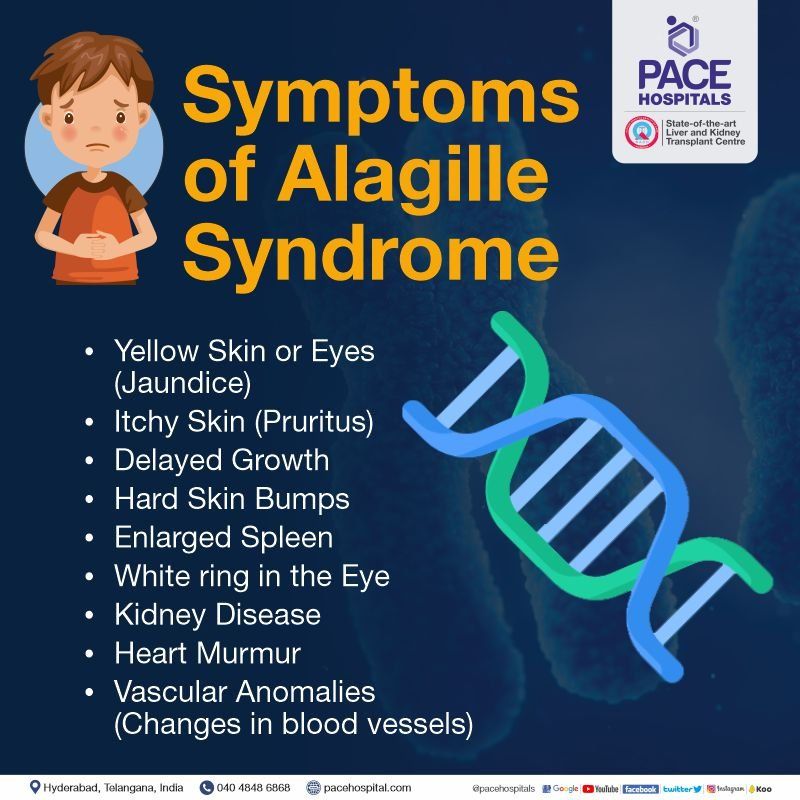
How is Alagille Syndrome Diagnosis performed?
To confirm the prevalence of Alagille syndrome, health experts perform the diagnosis followed by doing a liver biopsy with an indication of the availability of less no bile duct in the liver than usual and a few more following symptoms:
- Characteristic face shape of Alagille syndrome
- Abnormal bone/vertebral structures, such as a butterfly's spine
- Abnormal structure of the heart/vessels or heart murmur
- Liver problems
- Characteristic white rings on the cornea
Apart from liver biopsy tests and prevalence of symptoms, healthcare experts check for the patient's medical history and other medical tests to confirm the Alagille syndrome. Some tests performed to diagnose the Alagille syndrome are as follows:
- Heart and blood vessel tests
- Eye exams
- Spine X-ray
- Abdominal ultrasound
- Kidney function tests
- Genetic testing
What are the complications of Alagille Syndrome?
Alagille syndrome can be associated with the abnormalities of other organs in the body. Hence, there is a chance that this rare disorder can affect the functioning of other organs, causing different ailments and complexity.
Some of the complications that could occur due to Alagille syndrome are:
- Liver failure
- Pancreas disease
- Problems with the eyes
- Bleeding into the brain
- Bone fractures
- Malnutrition
- Delayed mental or physical growth
- Diarrhoea
- Heart disease
- Kidney failure
Treatment of Alagille Syndrome
As this rare disorder affects the functioning of other organs, so health expert will evaluate the patient thoroughly and will figure out the best treatment based on the circumstances:
- Age of the patients
- Based on the medical history of the patients
- The severity of the sickness
- Patient's capacity to handle particular medicines, procedures, or therapies
- Medication to raise the bile flow out of the liver
- Medication to relieve itching sensations
- Suggesting vitamin and high calories food supplements
- Surgery options to reduce the build-up of bilirubin in the blood
- Liver transplant in the case of liver failure
Can Alagille Syndrome be prevented?
As Alagille Syndrome is mainly caused due to gene mutation and is an inherited condition, having genetic testing and a discussion of genetic risk in the family can help you make informed decisions to prevent this disease in future generations.
Share on
Request an appointment
Fill in the appointment form or call us instantly to book a confirmed appointment with our super specialist at 04048486868

